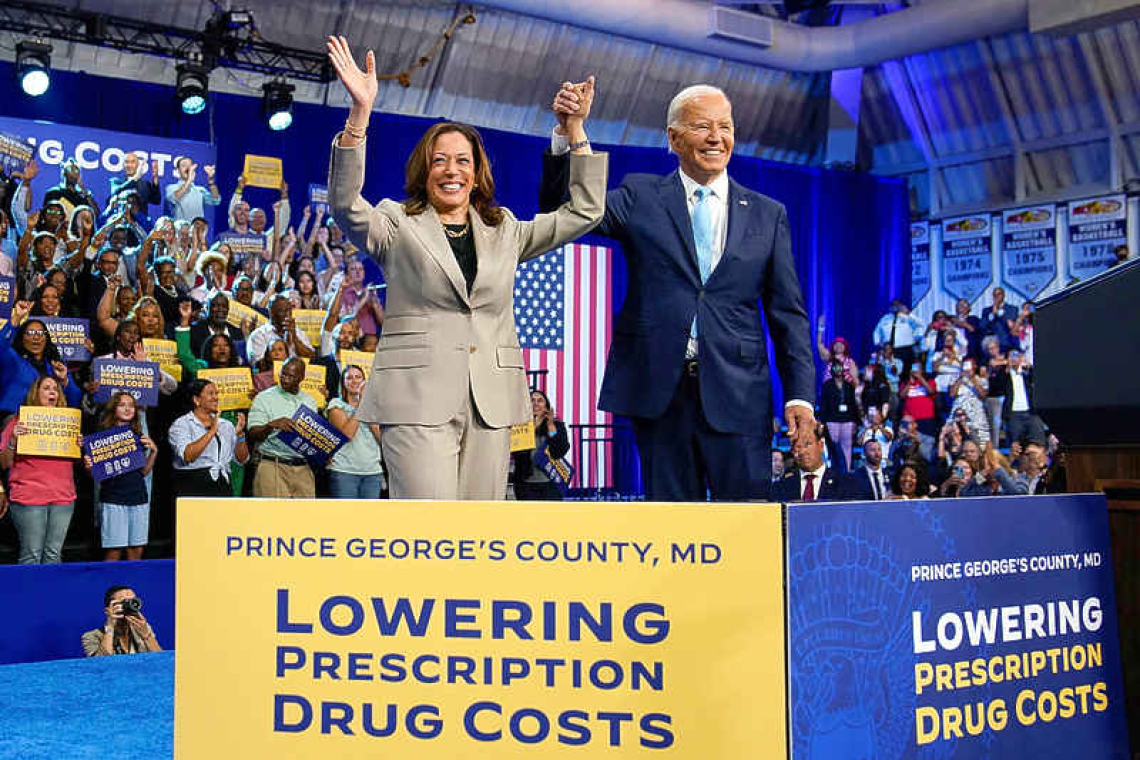LARGO, Maryland--The United States has negotiated down the prices of 10 top-selling prescription drugs used by Medicare by as much as 79%, hoping to save $6 billion in the first year as part of a plan hailed on Thursday by President Joe Biden with the aim to ease anger about high prices ahead of November elections. Biden's signature Inflation Reduction Act, signed into law in 2022, was the first to allow Medicare to negotiate prices for some of the most costly drugs that the programme covers for 66 million people. The new prices will go into effect in 2026. "We finally beat Big Pharma," Biden said at an event in Largo, Maryland, alongside Vice President Kamala Harris. The administration hopes the savings will ease Americans' anger about high prices, an issue they frequently say is their top concern headed into the closely contested Nov. 5 presidential election between Harris and Republican former President Donald Trump. "My entire career, I have worked to hold bad actors accountable and lower the cost of prescription drugs," Harris said. "Medicare can use that (collective bargaining) power to go toe-to-toe with Big Pharma and negotiate lower drug prices." The new prices represent cuts to individual list prices that do not reflect any rebates and discounts the government may already be getting for the drugs, although the government's estimated savings from the negotiations do take those discounts into account. Harris' tie-breaking Senate vote passed the law that allows for the drug-price negotiations, which no Republicans supported. In a statement, she also pointed to her work as California attorney general holding "big pharma accountable for their deceptive and illegal practices." Though it was an official event, Biden turned his speech in the gymnasium into a de facto campaign rally, saying Harris would make a "hell of a president" and criticizing Republicans for not supporting Medicare's right to negotiate drug pricing. Republican House leadership, including Speaker Mike Johnson, described the power as "price fixing" in a statement. "Their prescription drug price fixing scheme has accomplished just two things: driving up health care costs and crushing American innovation in medicine." The administration said people covered by Medicare, which mostly serves Americans aged 65 and over, would also save $1.5 billion in out-of-pocket costs for the prescription medicines in 2026. Merck & Co's diabetes drug Januvia faces the steepest percentage price cut of the drugs on the list, decreasing 79%, while Novo Nordisk's insulin aspart products will face the second steepest of 76%, according to the government. The other eight drugs on the list face cuts of between 68% and 38%. BMO Capital Markets analyst Evan Seigerman said the important comparison for investors would be the difference between the product's newly discounted price and the ultimate net price. U.S. health secretary Xavier Becerra said in an interview that the government was reluctant to share net prices as they are considered confidential, declining to comment on whether they would be published in the future. Drugmakers voiced their opposition to the new discounts that they said would not necessarily lower out-of-pocket costs for patients and could hinder future innovation. Several last month said they did not expect a significant impact on their businesses after seeing the confidential prices from the government.







